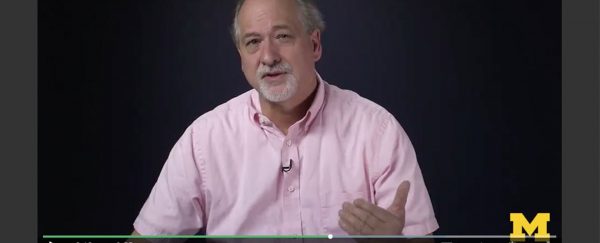
Charles Severance, an associate professor in the school of information at U-M, teaching his blockbuster course on Python.
Some “blockbuster” massive open online courses (MOOCs) generate large revenues for universities, which then often distribute the funds in a variety of ways. U-M typically gives a third of its revenue from MOOCs to central administration, a third to the department offering the course, and a third to the professors teaching it.
Charles Severance, a clinical associate professor in the School of Information, teaches one such blockbuster MOOC. His course on Python is a Coursera “top ten” offering. With the money he has received from the online course, he started an edtech company and has donated to charities.
According to James DeVaney, associate vice provost for academic innovation, U-M schools that produce well-performing MOOCs will sometimes put the revenue into an “academic innovation fund” to improve teaching. Some revenues from MOOCs were also used to start Michigan Online, which provides a one-stop directory of all the university’s online course offerings.
